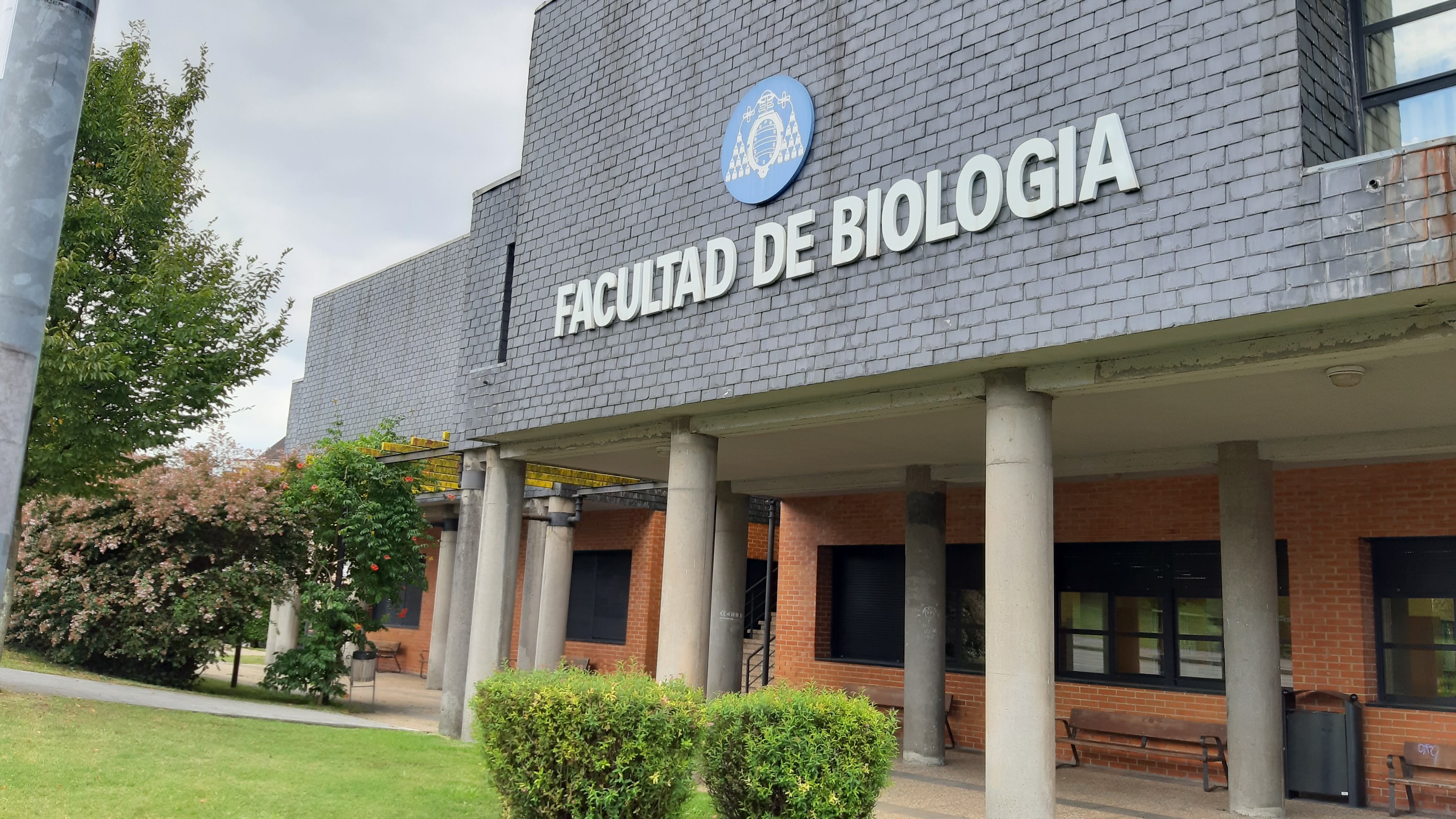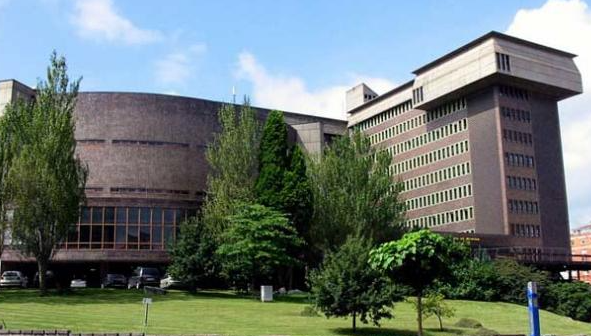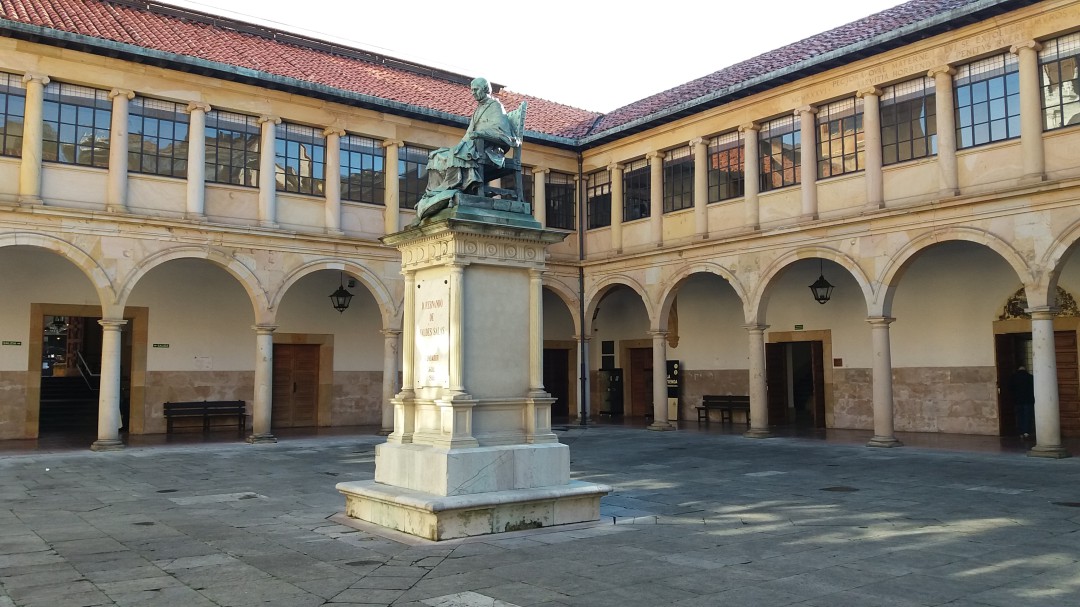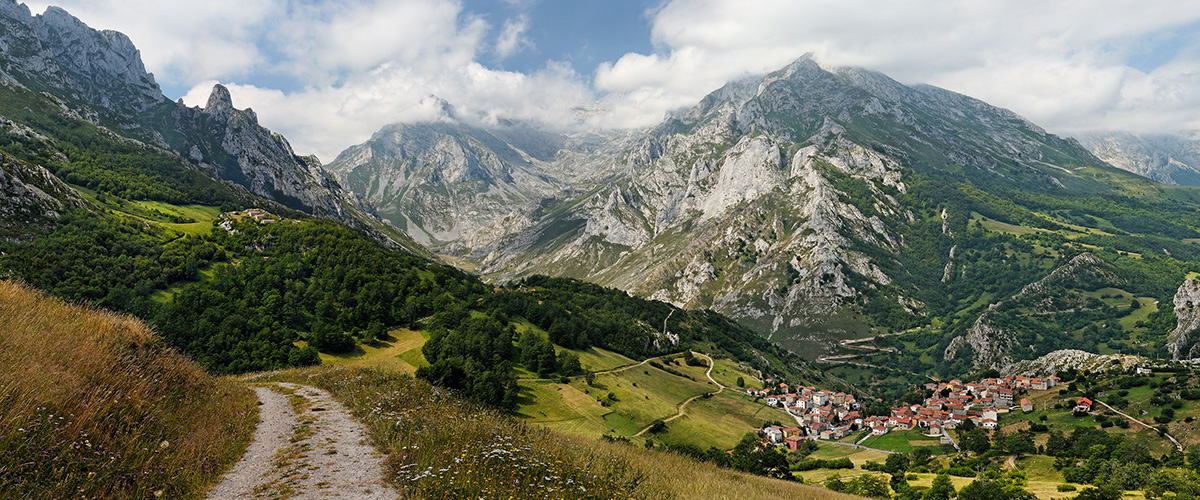University of Oviedo
General Information
The University of Oviedo is a public institution of higher education and research in the Principality of Asturias. With over 400 years of history, it offers a full range of undergraduate degrees adapted to the European Higher Education Area (EHEA) in all branches of knowledge and postgraduate degree programs in collaboration with national and international universities and more than 250 companies. It has more than 23 000 students, 1500 researchers and 250 research groups.
With an international calling, close ties to the region and a strong commitment to the transfer of knowledge to the business world, the University of Oviedo was one of the first nine universities in Spain to receive accreditation as a Campus of International Excellence on 26 November 2009. The CIE Asturias-Ad Futurum project brings together more than 300 regional and national institutions, companies and technology centres.
Housing
Full information about housing and accommodation services offered by the University of Oviedo is disclosed on the website. Also, the Office for International Relations provides guidance to the students requesting accommodation.
There are many options for accommodation in Oviedo. Students may have good places in two outstanding student halls of residence providing a comfortable stay and full integration in university life: the San Gregorio Residence Hall and the America Residence Hall, located in the Campus Los Catalanes near downtown. Price per month is 415.38 € and 432.35 € respectively.
A rented flat is one of the most common options for students. Opportunities for apartments and room sharing can be found in the Student Accommodation Information Center (CIVE) platform. The average cost per month is between 100 and 200€/month in shared flats, depending on the location, and can be 300-400€ for independent single studios or small flats. There are available online lists that compile a series of flats that can be directly rented by the foreign students of the University of Oviedo. Each entry briefly lists the essential characteristics of the offer (location, admission requirements, price per room or the whole flat, contact phone). Flat offers are organised by location located in three different zones of Oviedo: city center, El Cristo - where the Faculty of Biology is located, El Milán.
Moving to another country involves a drastic change in the environment and customs. Foreign students of the University of Oviedo have the option of being taken in by an Asturian family during their time in Spain. This so-called Homestay Program enables students from other countries to familiarise themselves with the Spanish way of life while enjoying a warm and friendly environment. The selected families host the student at home during their stay in Asturias. This board and lodging program covers all the student's needs.
Shared accommodation with elderly people (“Plan Convive”) is another –cheaper- option in nearby Gijon.
Useful Links:
Housing and accommodation services
Living Costs:
- Overall monthly student costs at Oviedo will range from €600-700
- Renting a room can oscillate between 200 and 300€/month.
- Monthly groceries can take 100 - 200€/month.
- The price of a meal in a restaurant can be about 10€, and
- The menu in University halls, schools and faculties around 6€
Services
The International Graduate Centre (IGC) of the University of Oviedo is a hub for graduate education in our institution. The Centre is one of the key elements of the Campus of International Excellence and coordinates the whole offer of graduate studies including Masters’ Degrees, PhD programmes, specific degrees and continuing education.
The Service Centre for International Students within the IGC provides advice and full support to applicants and registered students. They inform about the facilities offered by the University of Oviedo, provide guide and help to solve all administrative and academic issues.
The University has has a Unit of International Relations (relinnorte@uniovi.es, relinsur@uniovi.es) that provides additional personal support in all practicalities (accommodation, sports, travel information etc) to international students attending to the School courses, as well as to outgoing students.
The University of Oviedo has specific support schemes to support students with special needs: the office for students with specific educational requirements (ONEO). Special attention will be paid to those students with special educational needs due to physical impairment. Every facility is designed keeping in mind accessibility for physically impaired students. A student advisor will be responsible of analyse any particular situation and look for the right solutions.
The University of Oviedo also foments the a•dUO program. It matches together an international student with a Spanish student in the same campus preferably, in order to facilitate the integration of the international student in the university life. Foreign students arriving at the University of Oviedo starting in September will discover how a-dUO makes it easier for them to find their way around the region's cities, find lodging, use public transportation and adapt to Asturias.
When IMBRSea students are registered at the University of Oviedo they receive the username and keys that facilitate the access to all University online services, as well as a student card that serves for obtaining discounts in transports, cinemas, museums and varied activities at regional level. For helping with the courses, providing materials online, communicating with the teachers and other issues of academic life there is the Virtual Campus where every course provides all the necessary information and material. It is a channel for easy and direct communication among teachers and students.
In each Faculty, as well as in the International Graduate Centre, Welcoming and Orientation Days for international students are organised each year. The dates are generally in the first week of September. In these days they are fully informed about the university life, facilities, contact persons, offices, and are invited to visit the Departments and Services of the University. The date of Welcome Days is published the previous month in the website of the University of Oviedo. The international students are personally invited through their UNIOVI email address.
Students of the University of Oviedo are associated in diverse student associations.
The Library of the University of Oviedo is entrusted with facilitating access to the necessary information for conducting research, contributing to the carrying out of teaching activities and fostering study habits among the university community. It comprises the Central Library and fourteen branches distributed over the University's different campuses. It has a collection of over 850,000 books, 14,000 issues of scientific journals and several thousand copies of other documents, such as microfilms, videos, sheet music, maps, CD-ROMs, etc. The Library's digital collection comprises more than 60,000 electronic resources, including books, journals, databases, electronic platforms and library portals. The catalogue that includes all these publications is accessible via any computer connected to the University of Oviedo network or to the Internet.
Many activities are organised that facilitate the integration of students in the cultural life of the region. These are organised through the Vice-rectorate of University Extension. The University of Oviedo has traditionally been one of the cultural drivers in Asturias. Through its University Extension scheme, the academic institution programmes an intense schedule of free activities that place music, theatre, talks, exhibitions and films within everyone’s reach. Workshops in theatre, a class of Scientific Thinking, a Debate league, music events, jazz courses and many other activities are organised, totally free, and international students are especially invited to join them. More than a century ago now, a group of intellectuals from the University, known as the Oviedo Group, conceived University Extension as a way for the university to reach out and make knowledge accessible to all of society. Its legacy spread throughout Spain and Latin America and universities nowadays play an increasingly active and important role in cultural life. With the mission of building bridges and strengthening ties, the University of Oviedo collaborates with different public and private institutions to organise diverse events throughout the year, endeavouring to reach all corners of the region. Located in the University's Historic Building, LAUDEO Cultural Centre (so-named after "La Antigua Universidad de Oviedo", i.e. The Old University of Oviedo) provides a unique setting for many of these activities. This landmark property houses exhibitions, talks, debates, academic events, film cycles and teaching activities in many of the specialized classes open to the general public, in addition to other activities held each year on the occasion of the Prince of Asturias Awards Ceremony.
Sports are centralised in the Sports Service. The University of Oviedo boasts sports facilities in the three cities where its campuses are located. The academic institution's sports facilities place a wide range of disciplines with full amenities at the disposal of students and staff. In addition to the facilities located on campus, the University also has a university hostel with affordable prices in the winter resort of Pajares for all fans of the mountains and skiing. All administrative services are centralised in Oviedo. There is an outdoor stadium with a synthetic athletics track, a synthetic running track, a soccer field, a five-a-side football court, tennis court and throwing area. The building that houses the heated pool has other amenities, a men's sauna and another for women, a multipurpose hall and a fitness-gym. Finally, in addition to the multisports arena, the indoor sports facility houses administrative offices and a hall of residence for sportsmen and women.
Asturias offers the visitor a privileged enclave in which to live, with tremendous historical, cultural and natural heritage. The region is considered one of the safest in the country and is able to strike that exceptional balance between urban life and the spectacular natural landscapes the cover its entire territory.
Language Opportunities:
Language courses are offered for Erasmus students especially tailored for them. They are in the University of Oviedo offer within Transferable Skills. In addition there are other types of courses (initiation, advanced, proficiency) of Spanish and many other languages. EU and non-EU, in “La Casa de las Lenguas” (https://lacasadelaslenguas.uniovi.es/). The main objectives of La Casa de las Lenguas are boosting the linguistic offer aimed at the foreign students who each year conduct their studies at our university and improving the formation in languages of the university community and, by extension, of the Asturian society. It is, therefore, aimed at two main lines of action: one devoted to teaching Spanish to foreign students and another one focused on teaching languages and lending translation services and language tutoring.
La Casa de las Lenguas organises eight different types of courses of Spanish of varying duration:
- Spanish for Beginners
- Spanish Language and Culture
- Intensive Spanish course for University Exchange students (Erasmus, Socrates, Tempus students...)
- Intensive Summer Courses
- Spanish as a Foreign Language Exam (DELE) Preparation Course
- Spanish Courses for Specific Purposes
In the Spanish Language and Culture courses, students can choose five areas from a selection of nine subjects taught by specialists whose contents are structured around issues such as Grammar within a communicative context, Vocabulary, Phonetic Correction, Spanish Literature, Latin American Literature and Culture, and Spanish History and Art. Classes are held in the morning, Monday through Friday.
Many different levels are offered that, in each course, will adapt to the specific needs of the aptitude demonstrated by the students in the classifying exams:
- Autumn Course (October-December): 5 language levels: Intermediate I (A2), II (B1), III (B2). Advanced I (C1) and II (C1.1)
- Spring Course (January-May): 5 language levels: Intermediate I (A2), Intermediate II (B1), Advanced I (B2.1), Advanced II (C1) and Advanced III (C1.1)
- Intensive Course from May to June: 3 levels
- Intensive Course July: 8 levels
- July Hispanic Heritage Course. C1 and C2
- Intensive Course August: 5 levels
La Casa de las Lenguas of the University of Oviedo offers 63 courses in eleven different languages: German, Arabic, Asturian, Chinese, French, Modern Greek, English, Italian, Japanese, Spanish, Sign Language and Portuguese. The courses may be taught by one or more teachers, all of them specialists in each of the different languages offered. Upon completing the course, the students who have attended at least 85% of the classes and pass the final exam will receive a Certificate of Academic Progress. The rest of the students will receive a Certificate of Attendance.
A complete course (two terms) costs 275€ (prices may change each year according to standard life cost oscillations in Spain).
Visa Information
As soon as they are enrolled in the Master, the students receive an official letter of invitation from the International Graduate Center of the University of Oviedo. With that letter they can obtain a temporary permit of stay in Spain (visa), called Residence Permit. Detailed instructions about further paperwork (forms needed, process schedule, relevant addresses) are also received together with the invitation letter.
The paperwork to formalise their stay in Spain or obtain an extension of the visas or permits they may already have in place vary depending on the visitor's nationality. As regards the paperwork needed for medical attention, all students and visitors must hand in a copy of their medical insurance at the International Relations Office.
Non-nationalised, foreign teaching staff and students whose stay in Spain will exceed three months must apply for: Identity Card for Foreigners
The applicant must attach the originals of all the documents they present, which will be given back to them once the copies have been validated.
Mandatory documentation:
- Official model of the application for extension form: Ex 15, original and copy.
- Complete valid passport or document.
- Visa, if applicable.
- Documentation proving that the person is registered at the University or that they are conducting a research.
- Proof of payment of the University fees.
- Certificate of Registration (which must be canceled once the stay is over). Can be substituted by a sworn statement stating their place of residence.
- Medical insurance.
For stays shorter than 3 months, if it is covered by the compulsory Visa, no other procedure will be needed.
After booking an appointment, at least, a month in advance, the required documentation can be presented at the following official centres:
-
Oviedo: Dependencias policiales de extranjeros: Plaza de España nº 3, Planta baja,33007 Oviedo (no appointments before 9:00)
-
Gijón: Comisaría de Policía - C/ Plaza padre Máximo González s/n. 33212 Gijón.
-
Avilés : Comisaría de Policía - C/ Río San Martín, 2. 33400 Avilés
For scholarship students:
It is compulsory that the following documentation is sent to the Office of the Vice-Rector for Internationalisation and Postgraduate Studies:
- Photocopy of the national ID or passport.
- Erasmus Student Application Form (if applicable), properly signed by the student and with a passport-sized photo.
- Erasmus Student Application Form.
- Application Form in Cooperation Agreements.
- Erasmus Learning Agreement (if applicable), correctly signed by the student, the Institutional Coordinator and the Teacher in charge of the agreement in the university of origin. To fill in the section of subjects that will be taken at the University of Oviedo, with their respective codes and number of ECTS credits, you may check the quick links to the offer of Undergraduate and Master's Degrees and PhD Programs.
Deadline:
- June 30 for students who start during the first semester or stay for the whole academic year.
- November 30 for students who start during the second semester.
Recipient's address: The original documents are sent by post to the Office of the Vice-Rector for Internationalisation and Postgraduate Studies: C/Principado 3, ground floor - 33027, Oviedo - Asturias - Spain. A scanned copy can be sent in advance by e-mail: relinoficina@uniovi.es o por fax: +34 985 10 40 49
The Office for International Relations of the University is a reference point where all foreign students can find the information they need. The staff at the Office will help students to complete all the paperwork needed to legalise their residence, find accommodation, access health care during their stay in Spain and to formalise their registration at the University of Oviedo. Furthermore, those students who so desire can receive the guidance and specific support of a student from the University of Oviedo who will accompany them and advise them during their first few weeks in Asturias. If you are interested in this kind of help, you can sign up for the a-dUO program before you come.
Exams
Some courses have a system of continuous evaluation. In these courses evaluation is based on class work, assignments and seminars. In the courses with exams these are generally in writing. They are corrected by the lecturer and the scores given to the students through the UNIOVI web-site intranet. A day is set up for individual meetings with the lecturer to discuss and revise the marks (whether evaluation system). After that date the marks are uploaded in the student’s record. Complaints are solved by a commission specifically designed ad hoc by the Dean.
There is also a University Ombudsman that the students can approach if they still disagree with the final marks/scores in their studies, after the standard reclamation process is finished. The University Ombudsman is a body providing safeguards and appointed by Senate. Its actions are not subject to mandatory instructions on the part of any university authority, being governed by the principles of independence, impartiality, independence and confidentiality. The current University Ombudsman is Mr Ramón Durán Rivacoba, who was appointed on15 December 2011 and took office on 17 January 2012.
The University of Oviedo offers a simple on-line guide for students to quickly learn how to carry out certain procedures, what requirements must be completed for each and where to go to take care of it. This initiative aims to simplify things and pave the way for students through the bureaucratic paperwork, making the whole process much more efficient. This information and additional links to administrative forms.





